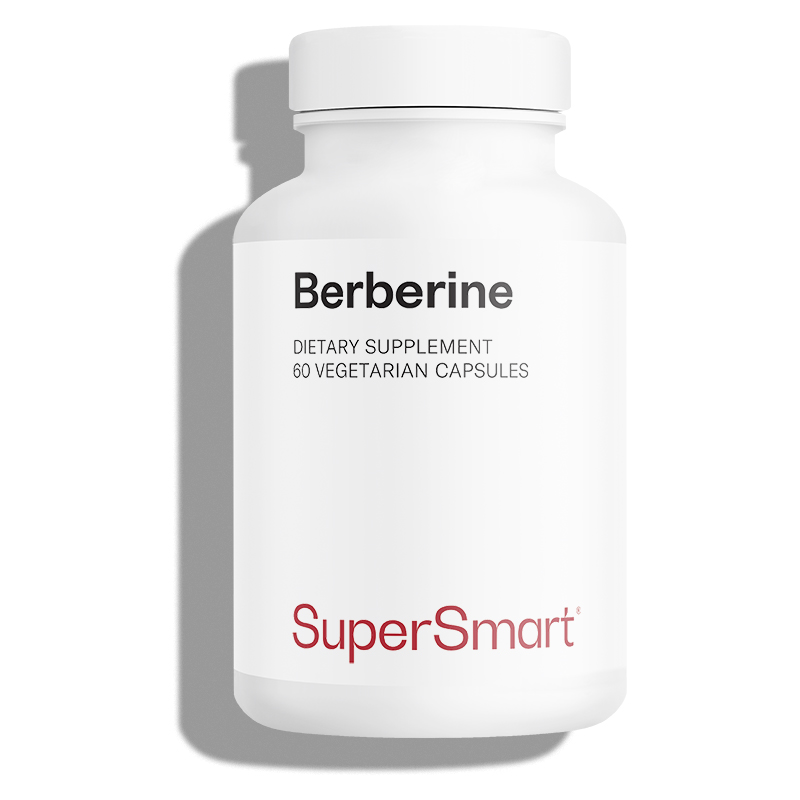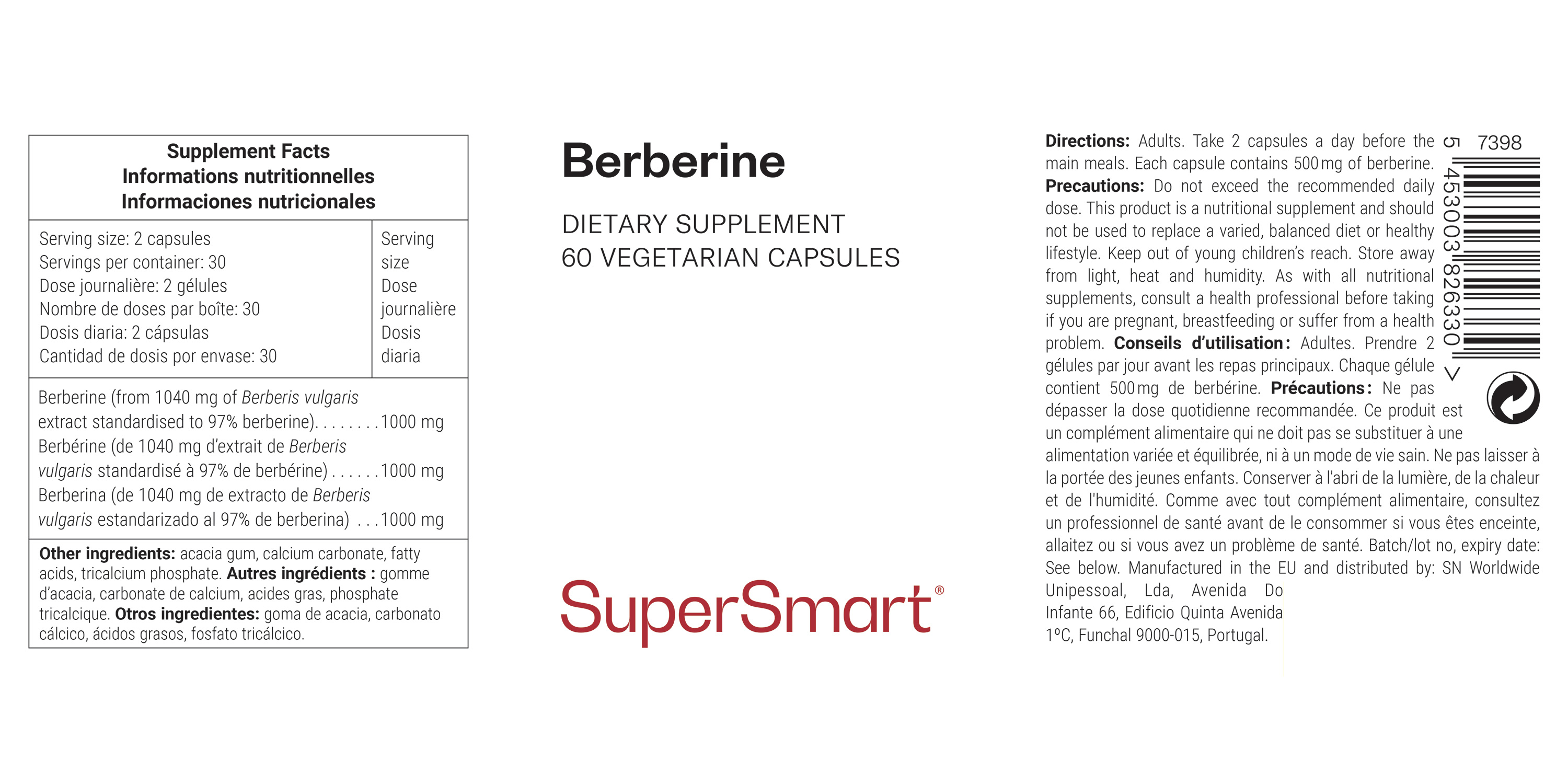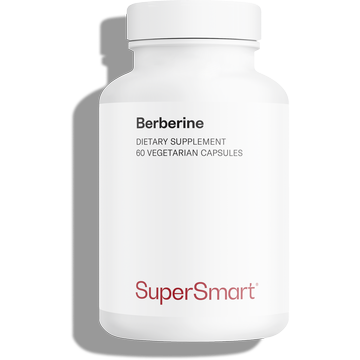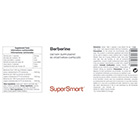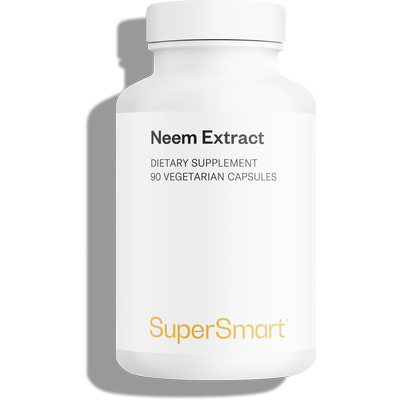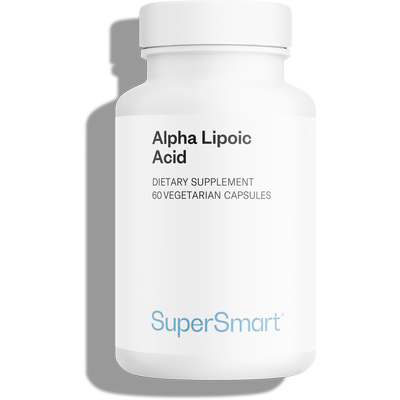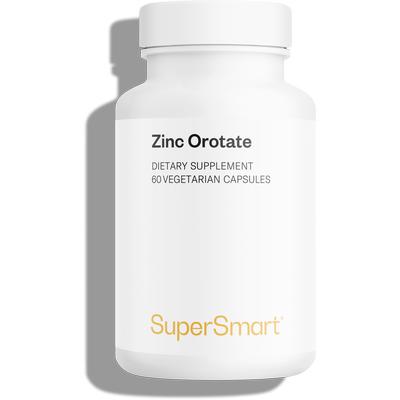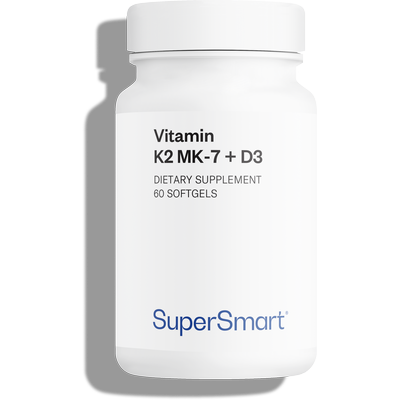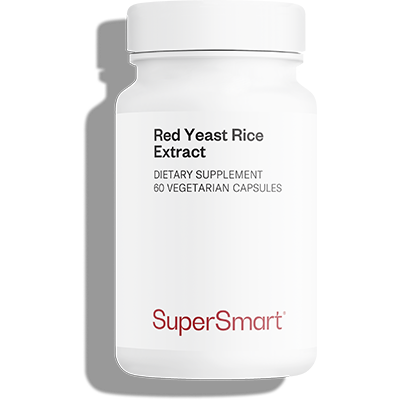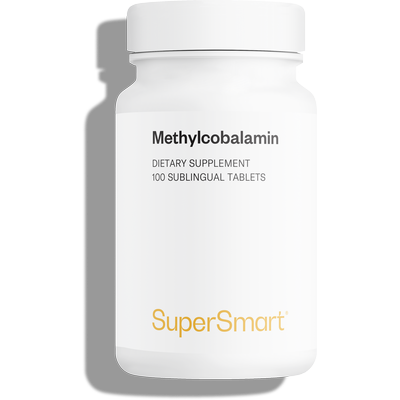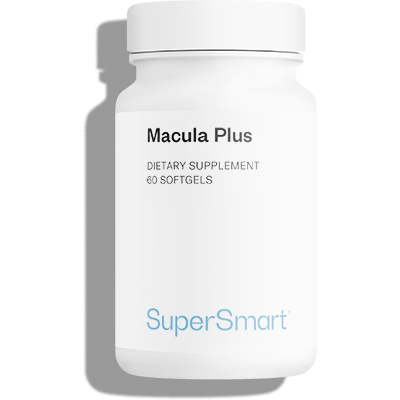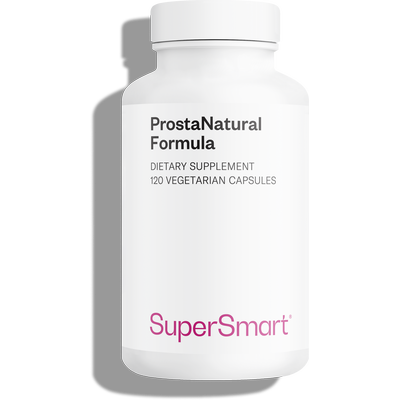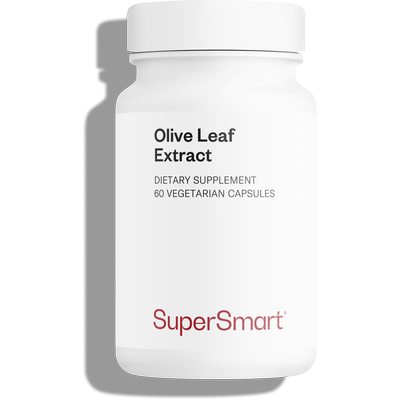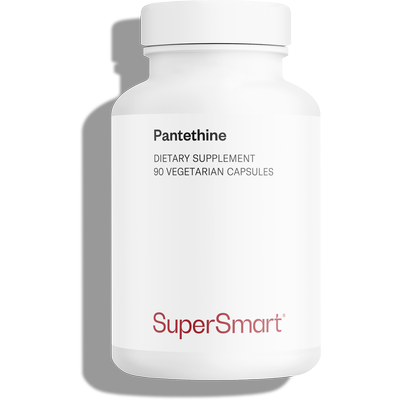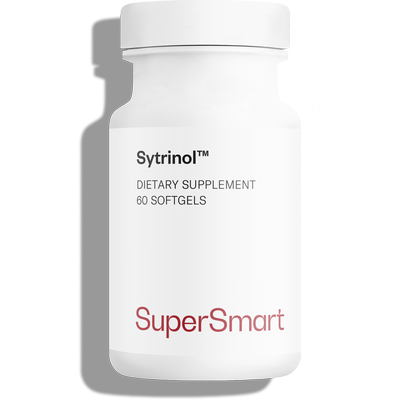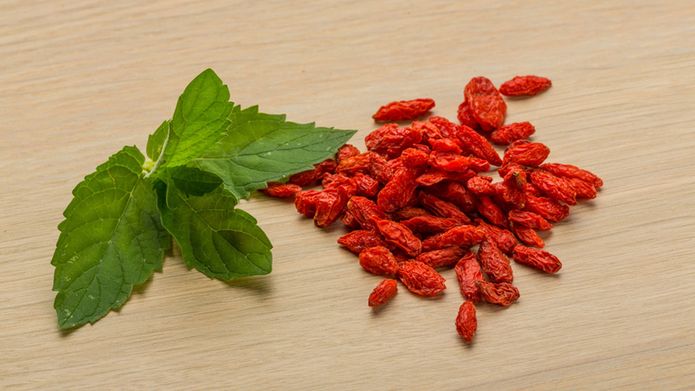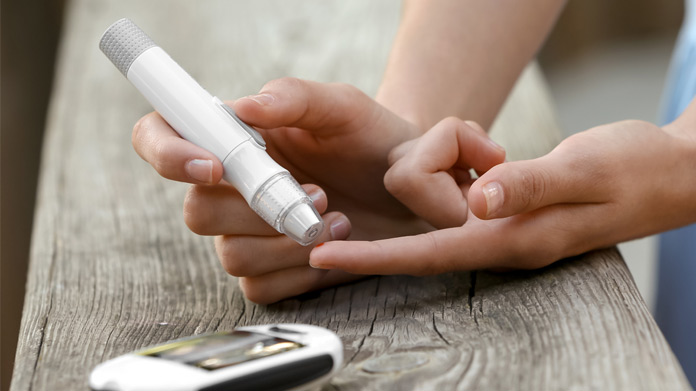In stock
Berberine
Berberine supplement: blood sugar, cholesterol, intestinal health...
Complete your selection
Berberine 500mg is a superior quality supplement obtained from common barberry. It contains an exceptionally high level of berberine, a phytonutrient known for its remarkable effects on cardiovascular health and one which has been used for thousands of years in Ayurvedic medicine.
What is berberine?
Berberine is a substance produced by certain plants such as common barberry (Berberis vulgaris). It is an alkaloid – a “natural, organic compound with a complex molecular structure (heterocyclic), which has marked physiological properties, even at low doses” according to the hypothesis put forward by Winterstein and Trier. It’s a fascinating group of natural products with significant therapeutic potential.
In vitro, this alkaloid can exert antioxidant, anti-inflammatory, hypoglycaemic, hypotensive and hypolipidemic effects (1 – 2), its most important property being that of acting as a calcium channel blocker.
Which plants contain berberine? Apart from common barberry, berberine is also found in Mexican prickly poppy, goldenseal, Oregon grape, yellowroot and Berberis aristata, a shrub that grows in the Indian Himalayas.
What are berberine’s mechanisms of action?
Berberine has been widely studied for its properties and physiological effects. The plant from which it is extracted has been traditionally used for thousands of years: reference to the use of Berberis vulgaris for ‘purifying the blood’ has been found on clay tablets in the personal library of the Assyrian Emperor Ashurbanipal, dating back to 650 BC. It was also used in Ayurvedic medicine to treat infections, aid wound-healing and ‘open the mind’.
With an estimated intestinal absorption of between 0.4 and 1%, there are questions surrounding its bioavailability when taken orally, which is considered to be low (7). However, in vivo studies show that distribution of orally-ingested berberine in tissues is much greater than its concentration in blood. It is rapidly transported to the kidneys, muscles, heart, pancreas, liver and fat, where it is metabolised and converted into berberrubine, thalifendine and jatrorrhizine, its main active metabolites (8).
Scientists are currently investigating its mechanisms of action: hundreds of studies evaluating its benefits for cardiovascular health are published each year.
Pharmacokinetic interactions have already been observed when it is co-administered with cyclosporin A (used for treating auto-immune diseases) and metformin (used for reducing insulin-resistance in type 2 diabetes) (9).
What is in Berberine
Any questions?
Our team of nutrition experts and scientists has the answers.
Plants from the Berberis genus grow in all the world’s semi-tropical regions. That’s why berberine is such an integral part of the major systems of traditional medicine, such as Ayurvedic and Chinese medicine.
Our berberine supplement is obtained from Berberis vulgaris (common barberry) which grows predominantly in Iran, the world’s largest producer with 11,000 hectares of cultivation. Various parts of the plant are suitable for therapeutic use, namely the bark, the root and the stem, though it’s the dried barberries which are most commonly-used (3 – 4). It has been judged completely safe for human use by the American FDA (5).
Barberry contains other alkaloids such as oxyacanthine, berbamine, bervulcine and columbamine, but it’s berberine which attracts most interest among the scientific community. That’s why we’ve chosen to enrich our natural extract with berberine (guaranteed to contain 97% active principles).
The therapeutic dose used in the majority of clinical studies is between 200mg and 500mg, two to three times a day. Supersmart’s berberine comes in 500mg vegetarian capsules, to be taken just before meals, at these same intervals.
If you find swallowing capsules hard, there’s nothing to prevent you from breaking open the capsules and diluting the contents in a glass of water, fruit juice or yoghurt. Berberine is actually converted by oral flora into dihydroberberine, which may be absorbed better in the gut (13).
Updated: April 2018
Note: this product should not be used as a substitute for a varied, balanced diet and a healthy lifestyle. It’s important to follow the guidelines on how to take it and the recommended dose, and to use it by the ‘best before’ date. It is not recommended for women who are pregnant or breastfeeding, or for children under 15. Keep out of children’s reach. Store in a cool, dry place.
There are several supplements available to buy at Supersmart which may be of interest for helping to prevent high blood sugar and improve cardiovascular health.
- DHA (docosahexaenoic acid), sold in supplement form as Super DHA, helps maintain normal triglyceride levels (10).
- PectaSol® (a natural concentrate of lemon pectins) helps reduce post-prandial increases in blood sugar (when taken with meals at a dose of at least 10g) (11).
- Beta 1.3/1.6 Glucan, a natural substance obtained from yeast cell walls, helps maintain optimal cholesterol levels (12).
And if you like taking phytonutrients, you also have a number of options:
- Apple Polyphenols, a concentrate of apple polyphenols.
- A broccoli extract standardized in sulforaphane glucosinolate.
- Olive Leaf Extract, a ‘Mediterranean’ formulation with a triple action against cholesterol and triglycerides.
- Double Pomegranate, a pomegranate-based supplement with high antioxidant potency.
This product’s capsules are made of pullulan, a natural polysaccharide obtained by fermenting tapioca or corn. Pullulan contains no animal ingredients and provides an excellent barrier to oxygen, helping to preserve the integrity of the capsule’s ingredients. It is also an eco-friendly alternative to synthetic materials.
december 20 2023
Super buen producto me está salvando de tomar metformina (que me sienta muy mal) y me hace el mismo efecto sin contraindicaciiones ni efectos secundarios
Super good product, it is saving me from taking metformin (which makes me feel very bad) and it has the same effect without contraindications or side effects
 see the translation
Translated by SuperSmart - see the original
see the translation
Translated by SuperSmart - see the original
may 30 2023
tres bon produit, fait le job.Remplace bien la metformine,pour faire baisser la glycemie, mais provoque au debut un peu de constipation.
Very good product, does the job. Effectively replaces metformin to lower blood sugar, but causes a bit of constipation at first.
 see the translation
Translated by SuperSmart - see the original
see the translation
Translated by SuperSmart - see the original
april 4 2023
Utlisé pour remplacer METFORMINE
Used to replace METFORMIN
 see the translation
Translated by SuperSmart - see the original
see the translation
Translated by SuperSmart - see the original
march 30 2023
Ce produit que je prends depuis 2017 a permis de stabiliser mon diabète sans avoir à prendre de la metformine. Il faut quand faire attention à ce qu'on mange et ne pas faire d'excès de sucre. Mon endocrino, qui ne connaissait pas la berberine en 2017, au vu de mes résultats d'analyse est très content des résultats dans mon cas. Il n'y a pas d'effet secondaire, j'espère pouvoir continuer encore longtemps ce traitement
I have been taking this product since 2017, and it has helped stabilize my diabetes without needing to take metformin. You still need to be careful with your diet and avoid excessive sugar. My endocrinologist, who was not familiar with berberine in 2017, is very pleased with my test results. There are no side effects, and I hope to continue this treatment for a long time.
 see the translation
Translated by SuperSmart - see the original
see the translation
Translated by SuperSmart - see the original
april 30 2022
super produit qui n'a juste qu'une constipation passagère et qui fait le travail.la metformine débouche sur l'acidiose lactique .le choix est vite fait:Si la
Great product that only causes temporary constipation and gets the job done. Metformin leads to lactic acidosis. The choice is quickly made: If the
 see the translation
Translated by SuperSmart - see the original
see the translation
Translated by SuperSmart - see the original
Need help?
You may also like
of experience
your money back
##montant## purchase

